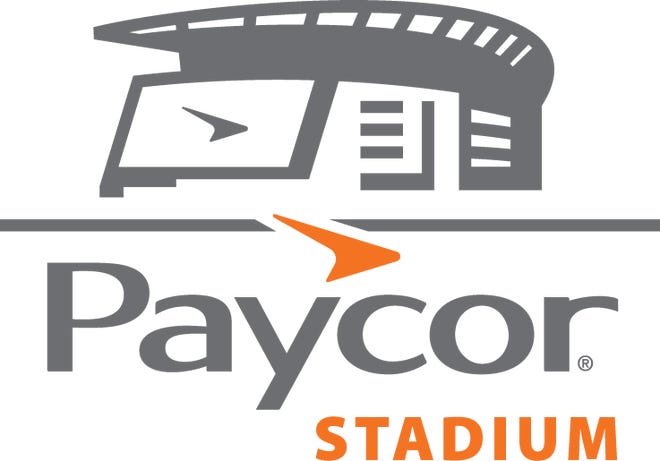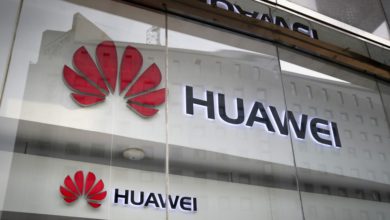
Paul Brown Stadium, home of the Cincinnati Bengals, will now become Paycor Stadium after Paycor HCM Inc. and the team agreed to a deal on the naming rights of the stadium, effective immediately.
The deal is for 16 years and has been in the works since March, the Bengals told The Enquirer. They did not release financial details.
Bengals uniforms:Cincinnati Bengals reveal 2022 uniform schedule
Joe Burrow:Bengals ‘encouraged’ with quarterback Joe Burrow’s progress post-appendectomy
Altafiber gate:Bengals add to Paul Brown Stadium as Altafiber becomes a gate naming rights partner

Paycor Stadium branding, including the full stadium signage, will begin to be integrated throughout the stadium in the coming months. Full signage won’t be up before the season gets underway, but fans will see signs of the new name throughout the stadium as soon as this Friday’s first preseason game, the Bengals said.
“This is a move that I think my father would have agreed to. He was always for what is best for the football team,” said Bengals President Mike Brown. “This partnership allows the Bengals to continue to compete at the highest level in the NFL and exemplifies our long-term commitment to the community.”
What kind of company is Paycor?
Norwood-based Paycor went public over a year ago in a $426 million initial public stock offering. Paycor provides small and medium-sized businesses with human resources and payroll software. Founder and former chairman Bob Coughlin started Paycor in 1990. It has 29,000 customers and employs 2,100 associates.

“Through a strategic partnership with our hometown team, the Cincinnati Bengals, we are beyond thrilled to introduce Paycor Stadium to the world,” Paycor CEO Raul Villar Jr. said in a news release.Bengals and Paycor executives are not expected to take further questions today.
Altafiber, formerly Cincinnati Bell, bought naming rights to a stadium gate, with signage put up over the last few days. Along with Altafiber, the team announced Gate C will now be called Betfred, the company already announced as the team’s sports betting partner. Both Betfred and Altafiber are new team sponsors.

The naming rights announcement is the first for the stadium since the Brown family paid $5 million when the stadium opened in 2000 to name it after the team’s founder. Nearly all the money, if not all, goes directly to the Bengals, under the team’s lease with the county.
Paul Brown Stadium was one of few remaining NFL stadiums without naming rights partner
Before now, the Bengals had been one of three NFL teams without a sponsored naming rights partner. The announcement puts an end to the guessing game about the new name since news leaked last month that a naming rights deal was in the works.
The signage needs to cross two approval hurdles. The city of Cincinnati’s zoning code isn’t set up for stadium-size signs, so special approvals are needed to allow it to be larger than permitted. Those approvals will be discussed at an Aug. 24 zoning board meeting.
Hamilton County commissioners are expected to discuss the deal Tuesday afternoon in a private meeting at the end of a staff meeting public session. No public vote will be taken.
“I think it creates an opportunity for us to partner with the Bengals,” said Hamilton County Commissioner Denise Driehaus.” It’s more revenue to their operations and to building the team. I think that’s a positive step. We have to figure out the details in the next few days or weeks.”
Katie Blackburn:Jason Williams – Let's hear more from Bengals' Katie Blackburn, women executives in Cincinnati
Mike Brown:Doc – Meet the real Mike Brown. If we hadn’t been adversaries, we might have been friends.
Paul Brown Stadium:Sports betting bar, nightclub proposed for Cincinnati Bengals' Paul Brown Stadium redesign
The three-member board is expected to take up the issue within the month. Financial details could come out then.
The Bengals on Tuesday formally requested the county approve the naming rights deal. In a letter to the county, provided to The Enquirer, the team sought permission for the new name. It wrote: “The Team is excited about seeing a local company prosper on a national platform, and therefore the Team looks to begin using the 'Paycor Stadium' name at the earliest possible opportunity.”
County voters approved building stadiums for the Bengals and Reds in 1996 with a half-cent sales tax. The design bookended a swath of land on the riverfront between the two stadiums, where The Banks development was later built between the stadiums.

Cincinnati Bengals stadium name change could help in Joe Burrow contract talks
The Bengals roster is loaded with young stars who have contract extensions coming up. Generating more local revenue helps for several reasons – specifically in keeping players like Joe Burrow, Tee Higgins and Ja’Marr Chase in town for years to come.
Tee Higgins:'I'm closer than expected': Bengals' Tee Higgins hopes to be fully cleared by end of preseason
Joe Burrow and Ja'Marr Chase:How Joe Burrow and Ja'Marr Chase put this Bengals cornerback on the path to the NFL
Tyler Boyd:'There's not too many like him': How the Bengals built a winning culture around Tyler Boyd
Under the contract between the NFL players' union and owners, the league requires owners to place the players’ guaranteed money into an escrow account at the time the deal is consummated. Depending on how the contract is written, the timing can vary on when exactly the money is due. The money then can’t be touched for any other operating expenses.
With guaranteed money owed to players increasing – or as in the case of the recent contract Deshaun Watson signed with the Cleveland Browns this spring being fully guaranteed – this means owners need more revenue at their disposal within a designated period of time.
“I can tell you that we couldn't be happier with Joe Burrow,” Brown said. “He's everything you would wish for, especially for a quarterback in Cincinnati. Our whole focus is going to be on keeping him here."
The Bengals face extension negotiations with Burrow next offseason, so the revenue generated from the stadium will become increasingly important. Under current agreements among the NFL owners, certain stadium-related revenues are not subject to revenue sharing.
For example, gameday revenues (tickets, concessions, etc.) are shared equally amongst all 32 teams. Forty percent of that ticket revenue is sent from the team to the league and put in a visiting team fund, which at the end of every season is distributed to all 32 teams. Designated stadium revenues, including naming rights, are not subject to revenue sharing. By signing up naming rights partners on the stadium and its gates, the Bengals are increasing the amount of local revenue that the team can keep.
“We're a small-market team,” Brown said at the Bengals’ annual media luncheon in late July. “We need the revenue streams that we can obtain. The fact that about 30 teams have naming rights and a revenue stream from that and they have more revenue than we do, to begin with. We have to do some things just to keep up."
Enquirer reporters Alexander Coolidge and Scott Wartman contributed to this report.
Source link






